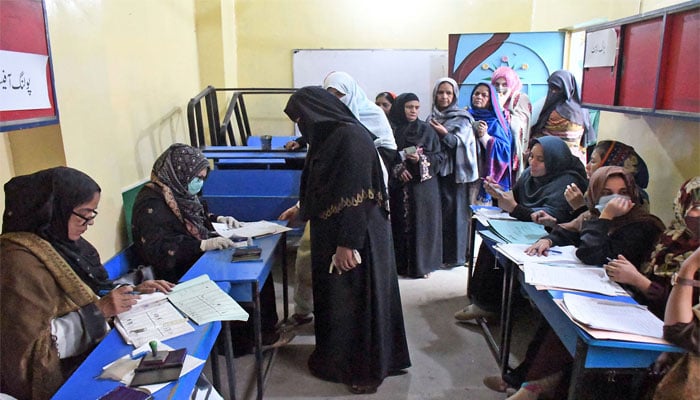‘Sindh LG polls controversies stem from weaknesses in legislative framework’
FAFEN says controversies over quality of electoral process don't augur well, particularly when parties are preparing for general elections
The Free and Fair Election Network (FAFEN) has said rigging allegations that plagued the much-delayed second phase of the local government (LG) polls in Sindh would not bode well for the general elections — likely to be held this year.
The unprecedented delays in the results of the January 15 elections prompted rigging allegations from a number of political parties — including Jamaat-e-Islami (JI), and Pakistan Tehreek-e-Insaf (PTI) among others.
"Controversies over the quality of electoral processes do not augur well, particularly when the political parties are preparing for general elections that are constitutionally due by October 11, 2023," the FAFEN said on Thursday in its report on the local body polls.
The electoral watchdog said that many of these controversies stem from weaknesses in the legislative framework that governs elections, which need to be rectified through wide-ranging negotiations among all political actors coming together for electoral reforms irrespective of their political differences.
Unless elections lead to political stability, the process of democratisation will continue to weaken and so will the public trust in democracy and its ability to improve the social and economic well-being of the people, the report said.
"The election commission, at the same time, needs to open up to political actors and address their legitimate concerns through the regulatory space available to it under the Elections Act, 2017, to ensure truly 'inclusive' elections, minimising the eventualities of poll boycotts by major political parties in future."
Issues with presiding officers
They reported that although the provisional results of Karachi were publicly available within two days amidst allegations of manipulation and rigging, the consolidated results of the districts in the Hyderabad Division are still awaited.
The ECP, it said, had reserved four days from the polling day for consolidation of the election results in its original notification for the second phase dated June 10, 2022.
FAFEN observers noted omissions and inadequacies in the polling station result forms — Form-11 (Statement of the Count) — recurring during the second phase.
"They reported cases where presiding officers did not duly fill out the result forms leaving empty sections made for recording polling stations’ names, registered voters, gender-disaggregated number of votes polled, and signatures of polling officials," it said.
Voter turnout and situation
Despite controversies and uncertainty over the conduct of elections, the FAFEN said, an impressive number of people turned to vote in local government elections in Badin, Jamshoro, Tando Muhammad Khan, Tando Allah Yar, Thatta, and Malir Districts.
The report added that however, the voter turnout remained relatively lower in Karachi Central, Karachi East, Karachi West, Karachi South, Korangi, Hyderabad, and Kemari Districts.
According to, the turnout in Hyderabad remained at more than 40%, while in Karachi it was less than 20% with the exception of Malir. The turnout in Karachi and Hyderabad Divisions remained at 36% and 58%, respectively, in the last local government elections held in 2015.
The voting process remained orderly, unlike the previous phase when instances of overcrowding at polling stations led to untoward situations, the report said.
"The legal and procedural irregularities and inadequacies concerning campaigning and canvassing inside and around the polling stations and the ballot issuance process observed during the first phase persisted during the second phase as well."
The election day environment was largely peaceful as FAFEN received only 14 reports of verbal altercations on January 15, 2023, as compared to 55 incidents of violence including some physical and armed clashes during the first phase, the report added.
-
Security forces gun down 30 terrorists in multiple IBOs in KP: ISPR
-
MQM-P calls for new province in Sindh
-
US report validates Pakistan military edge over India: PM
-
Banned TTP poses serious threat to Pakistan security: UNSC panel
-
CM Afridi clarifies remarks on by-poll after ECP requests army deployment
-
Dubai sees 3.2m Pakistani passengers in 2025 as airport sets new milestone
-
Security forces kill 23 Indian proxy terrorists in KP's Kurram
-
Pakistan to construct island to boost oil exploration: report












